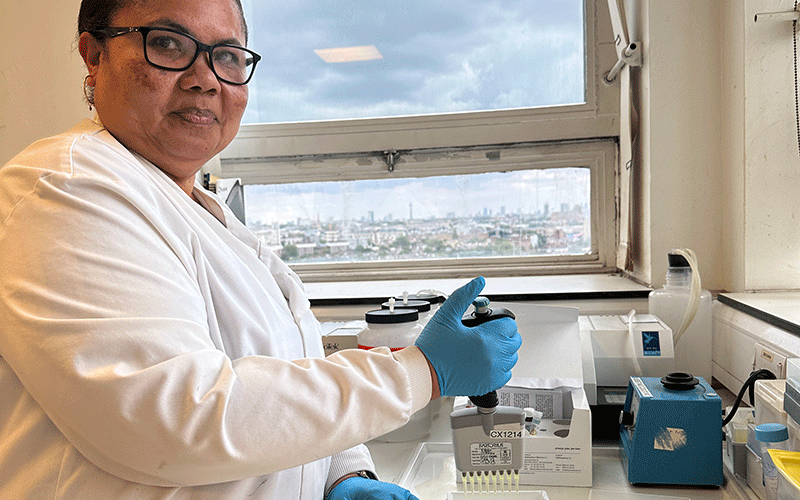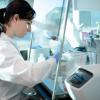Associate Practitioner Edna Rodrigues gives a guided tour of her laboratory at North West London Pathology.

My name is Edna Rodrigues. I work for North West London Pathology (NWLP) as an Associate Practitioner, currently based in the Specialist Clinical Biochemistry department at Charing Cross Hospital. NWLP is an NHS pathology partnership between Imperial College Healthcare NHS Trust, Chelsea and Westminster NHS Foundation Trust and Hillingdon Hospitals NHS Foundation Trust (comprising nine hospitals in total) providing accredited diagnostic laboratory services to the acute trusts, as well as primary care services in North West London.
The Specialist Clinical Biochemistry department is one of the largest NHS specialist laboratories in the UK and provides a wide array of complex and advanced diagnostic testing for our patients and is also a major referral centre for some of these tests. The department incorporates a Specialist Endocrinology Immunoassay service, LC-MS/MS and HPLC service, a large and comprehensive Protein Reference Unit, a Bone Metabolism service, Specialist Tumour Marker service and a Toxicology and Trace Elements service.
The service is accredited by UKAS to the ISO 15189 standard and our quality management system includes comprehensive internal quality assurance and control procedures with participation in appropriate external quality assurance schemes. Regular internal audits are conducted that allow us to review our procedures and improve our overall service delivery.
The service is staffed by a variety of workforce groups, such as biomedical scientists, clinical scientists, associate practitioners and chemical pathologists. Our laboratory is IBMS training-approved, offering training and development in the form of pre- and post-registration opportunities, such as participation in research projects and lecture/tutorial programmes. Staff are rotated between sections, thus promoting and supporting the development of professional skills for further career advancement.
As an Associate Practitioner, I have had extensive experience of Specimen Reception and our Multi-Disciplinary Automated Laboratory based at our “hub” site at Charing Cross Hospital before rotation to the Specialist Services laboratories. My current duties include supporting the Bone Metabolic assay service, which involves the use of an automated immunoassay instrument and manual ELISA methods. This is an Associate Supra-Regional Assay service (SAS) based at NWLP, part of the delivery of a specialist bone marker assay and advisory service by the SAS Executive Board. The Bone Metabolic service supports and is linked to the large Osteoporosis Clinics and Bone Metabolism Group in the Metabolic Medicine department (within Imperial College Healthcare NHS Trust).
I enjoy working in the specialist services as the bench-work can be varied and the regular rotation allows the staff to be exposed to complex and cutting-edge methods and equipment. The support and engagement from the biomedical scientist and clinical scientist staff is very important and valued as I continue to develop my skills and knowledge during my pre-registration training.




